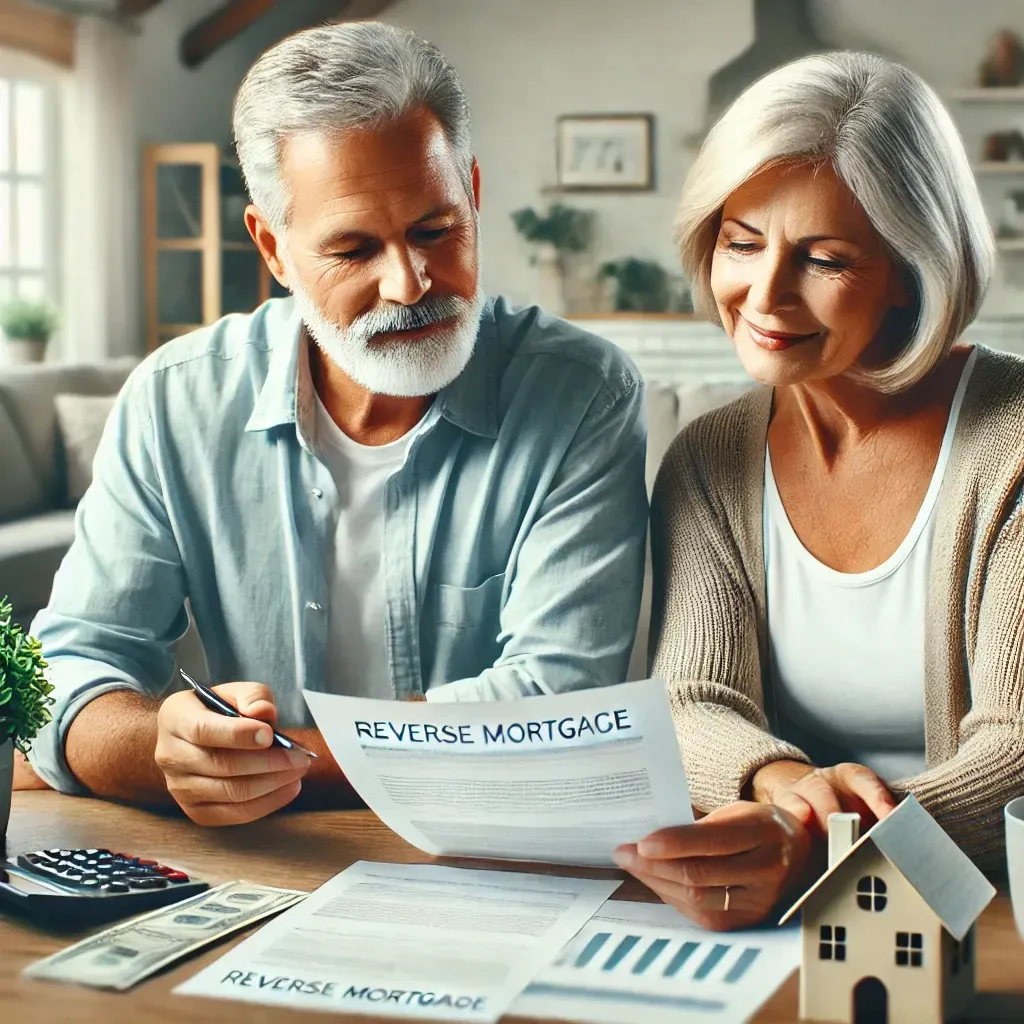
Reverse Mortgages 101: A Complete Overview for Senior Homeowners

What is a Reverse Mortgage? A Comprehensive Overview
A reverse mortgage is a powerful financial tool designed specifically for senior homeowners aged 62 or older. It allows you to unlock your home’s equity and convert it into tax-free cash, all while continuing to live in your home without making monthly mortgage payments. But how does it work, and is it the right option for you?
This guide will break down the essentials of reverse mortgages, covering how they work, who qualifies, the potential benefits, and the common myths surrounding them.
How Does a Reverse Mortgage Work?
A reverse mortgage allows you to tap into your home’s equity. Unlike a traditional mortgage where you pay the lender, a reverse mortgage works the other way around: the lender pays you. You can receive the funds as a lump sum, monthly payments, or even a line of credit that grows over time.
The loan balance grows with interest and is repaid when you sell the home, move out permanently, or pass away. Importantly, as long as you maintain your property, pay taxes, and keep up with insurance, you continue to own your home.
Eligibility Requirements for Reverse Mortgages
To qualify for a reverse mortgage, you must meet the following requirements:
Age: You must be at least 62 years old.
Home Ownership: The home must be your primary residence.
Equity: You need significant equity in the home, typically 50% or more.
Property Type: Eligible properties include single-family homes, FHA-approved condominiums, and multi-family homes up to four units.
Meeting these requirements is crucial, but there are other factors, such as credit history and financial assessments, that lenders consider.
Types of Reverse Mortgages
There are three main types of reverse mortgages, each serving different needs:
Home Equity Conversion Mortgage (HECM): The most common and widely available reverse mortgage, insured by the Federal Housing Administration (FHA).
Proprietary Reverse Mortgage: Private loans offered by lenders for homes with higher values.
Single-Purpose Reverse Mortgage: A lesser-known option offered by some state and local governments, designed for specific purposes such as home repairs.
The HECM is by far the most popular option, offering flexibility in how you receive your funds and government-backed protection.
The Benefits of Reverse Mortgages
A reverse mortgage can provide significant financial benefits for seniors who want to remain in their home while easing the financial burden of retirement. Some of the key benefits include:
No Monthly Mortgage Payments: You don't have to worry about making mortgage payments as long as you stay in your home.
Tax-Free Income: The money you receive from a reverse mortgage is not considered taxable income.
Flexibility: You can choose how to receive your funds, whether as a lump sum, monthly payments, or a line of credit that grows over time.
Financial Independence: Use the funds to cover daily expenses, medical bills, or even home improvements.
Common Misconceptions About Reverse Mortgages
Despite its benefits, there are many misconceptions surrounding reverse mortgages that may prevent homeowners from considering this option. Let’s clear up some of these myths:
"I’ll lose ownership of my home."
Not true. As long as you continue to live in your home, pay property taxes, and maintain homeowners insurance, you remain the owner."My family will be left with debt."
Reverse mortgages are non-recourse loans, meaning you (or your heirs) will never owe more than the value of the home when it’s sold."I won’t be able to leave my home to my heirs."
Heirs can still inherit the home, but the loan will need to be repaid. This is usually done by selling the home or refinancing the loan balance.
Is a Reverse Mortgage Right for You?
Reverse mortgages aren’t for everyone. They are most beneficial for seniors who plan to stay in their home long-term and want to access their home equity without selling. However, it’s important to consider all options and consult with financial advisors or reverse mortgage specialists before making a decision.
You’ll also need to consider the costs associated with reverse mortgages, such as origination fees, mortgage insurance premiums, and interest.
Final Thoughts on Reverse Mortgages
Reverse mortgages can be a powerful financial tool for seniors looking to unlock their home’s equity and improve their financial situation in retirement. However, as with any major financial decision, it’s essential to fully understand how the product works, the costs involved, and how it fits into your overall financial plan.
